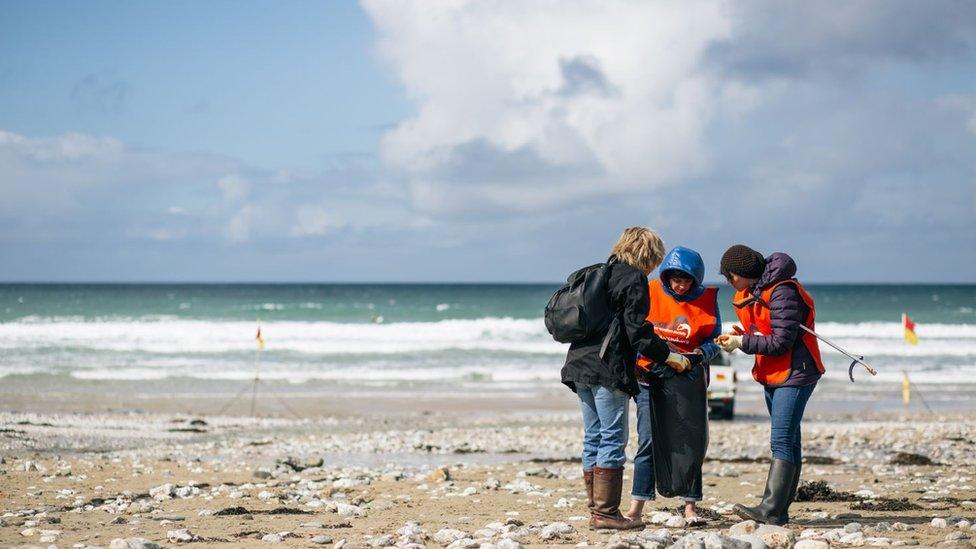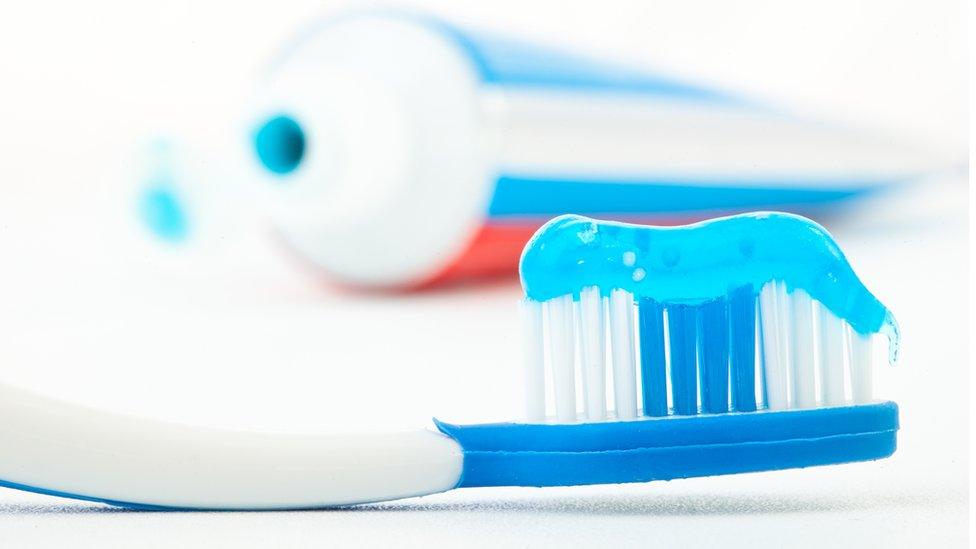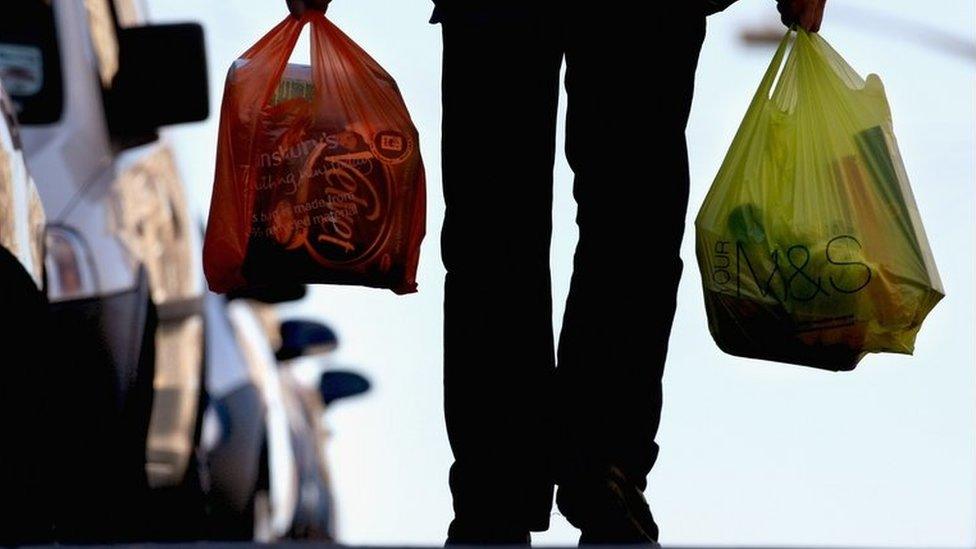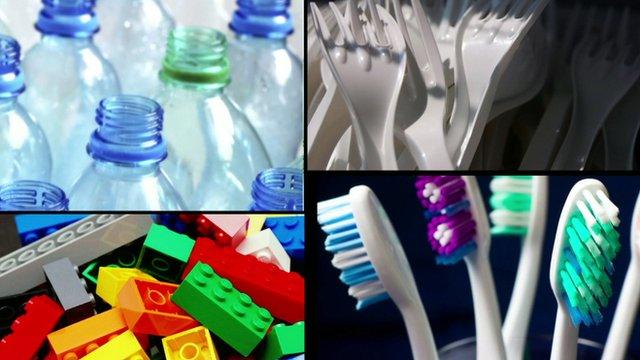Conservationists herald bag tax impact on beach rubbish
- Published

Turtles can mistake plastic bags for their jellyfish prey
The number of plastic carrier bags found on UK beaches has dropped by almost half, the Marine Conservation Society (MCS) has said.
The charity's Great British Beach Clean report found just under seven bags per 100 metres of coastline cleaned.
That is a 40% drop from the average 11 bags found in 2015 and is the lowest number in 10 years.
The MCS said the drop "vindicates" the introduction of a 5p charge on single-use plastic bags.
The MCS was among those groups which campaigned for the plastic bag levy to be introduced in Wales in 2011, Northern Ireland in 2013, Scotland in 2014 and England in October last year.
"We've seen a significant drop in the number and that can only be as a result of the 5p charge which is now in place in all the home nations," said MCS beach watch manager Lauren Eyles.
"It vindicates the charge, which we predicted would be good news for the marine environment.
"Thanks to our thousands of fantastic volunteers who collect beach litter data, we can now see the impact these charges have had."

Thousands of volunteers took part in this year's beach clean
The Great British Clean, external is an annual beach clean and survey that takes place all along the UK coastline.
This year, some 6,000 volunteers cleaned 364 beaches and recorded the litter they found.
In Wales, where the bag charge has been in place for five years, the number was lower than any other year since 2011 - just under four bags for every 100m cleaned.
But it was beaches in England and Northern Ireland which saw the biggest drop in the number of plastic bags found during the September clean up - with half as many recovered compared with 2015.
Environment minister Therese Coffey said the introduction of the charge in England had been a "huge success" and had raised £29m for charitable organisations and good causes.
One of those was the MCS, which received £28,400 in the last year, with the money being used to recruit thousands of beach clean volunteers
Ms Coffey added: "It shows small actions can make the biggest difference, but we must not be complacent as there is always more we can all do to reduce waste and recycle what we use."

Beach rubbish - items found in beach clean:
Plastic caps and lids (204 found per 100m) - floating plastic like this can be mistaken by seabirds for food
Cotton buds (23 per 100m) - plastic sticks end up in the sea through sewage, when they should go in the bin or be recycled
Wet wipes (14 per 100m) end up on beaches after they are flushed down the toilet

But the data collected by volunteers showed a rise of more than 4% in the quantity of drinks containers found on the UK's beaches - including plastic bottles, bottle tops and aluminium cans.
There was also a 53% rise over the past year in the amount of balloon-related litter found on beaches.
Plastic bags are particularly dangerous to turtles, who mistake them for their jellyfish prey. The bags can block their digestive systems, leading to death from starvation.
Some species of seabirds are particularly attracted by the scent of plastic junk and according to the MCS, over 90% of fulmars found dead around the North Sea have plastic in their stomachs.
The charity said there had been a drop of almost 4% in the amount of litter found on UK beaches between 2015 and 2016, with 6,000 volunteers collecting 268,384 items in this year's clean.
Beaches in Scotland saw a decrease of 18% in overall litter levels, rubbish in the North East of England dropped by 14% and in the Channel Islands by 10%.
But there were increases in the amount of beach litter in the North West (24%), Wales and the South West (15%) and in Northern Ireland (9%).
- Published3 September 2016

- Published30 July 2016

- Published5 October 2015
